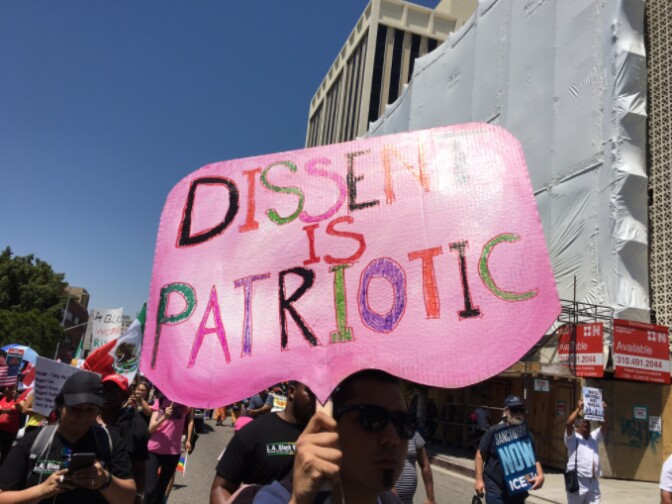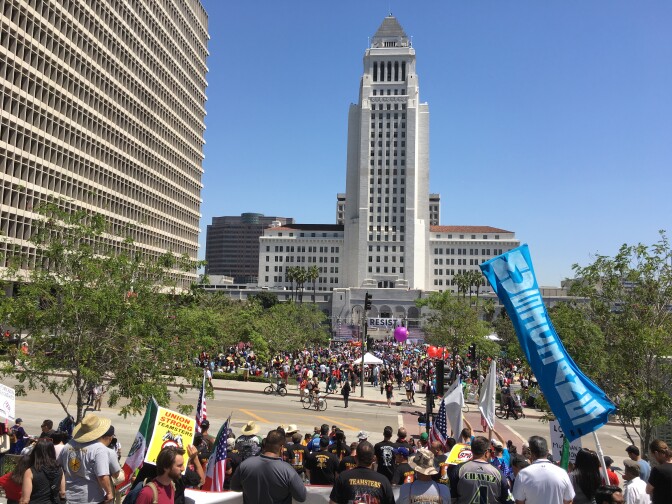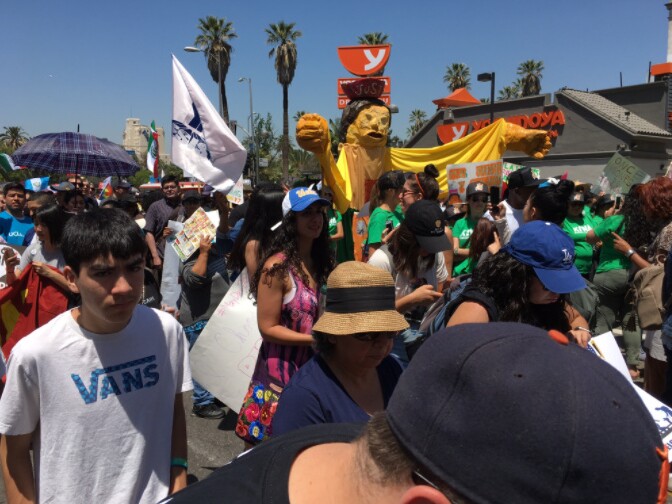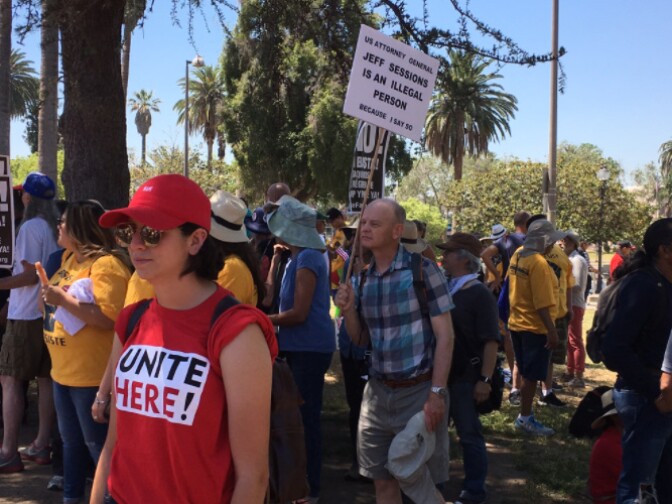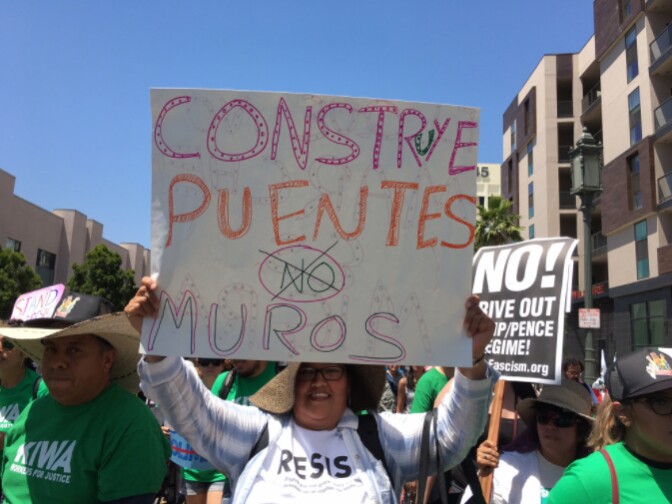This story is free to read because readers choose to support LAist. If you find value in independent local reporting, make a donation to power our newsroom today.
This archival content was originally written for and published on KPCC.org. Keep in mind that links and images may no longer work — and references may be outdated.
How did May Day become a day for immigrant rights marches?
May 1, long marked as International Workers' Day in countries around the world, has become known in the United States for its marches rallying for immigrant rights.
Today, a major Los Angeles march planned at 11 a.m., starting at MacArthur Park and ending with a rally fronting City Hall, has President Trump's immigration policies as its target.
May Day's close relationship with immigration became established over the past decade, although it dates back even earlier in Los Angeles, according to one advocate who lived that history.
As immigrant rights activist Angelica Salas remembers it, the first May Day march for immigration in Los Angeles took place in May 2000, when immigrant and labor rights groups organized a small march through Koreatown.
"We all gathered and marched to a restaurant…where a bunch of restaurant workers in Koreatown had not been paid," says Salas, executive director of the Coalition for Humane Immigrant Rights of Los Angeles.
A couple of thousand people marched that day to call attention to the underpaid workers, Salas said. Choosing May 1 to march made sense because of the day's history as a time to recognize workers, she said.
In the years since, organizers have staged larger rallies, and the focus has expanded beyond immigrant workers to immigrant rights in general.
International Workers' Day is still celebrated in many countries around the world and is a national holiday in some locations. Gaspar Rivera-Salgado, who teaches labor studies at UCLA, remembers how it was observed in Mexico City, where he grew up.
"In Mexico City, this is a holiday. People don't go to work," he said. "There is a parade...it is a big celebration where the president attends, all the politicians, and all the unions march in the main plaza, in the Zocalo in Mexico City."
But May Day has American origins, he said. It began as a remembrance of what’s known as the Haymarket Affair, a violent labor strike in May 1886 in Chicago where several people were killed.
The incident was tied to the anarchist movement of the time — one reason the remembrance never took off in the United States, said Rivera-Salgado. Lawmakers instead established Labor Day on the first Monday of September as a national holiday in 1894.
The way May Day is observed in the U.S. began evolving after labor unions began organizing immigrant workers, Rivera-Salgado said. As the labor and immigrant rights movements came together, the focus on workers' rights and immigrant rights began to merge.
“And this, of course, took off in Los Angeles in the spring of 2006, where you saw the huge massive protests," Rivera-Salgado said before that, May Day was a "very small affair.”
On May 1, 2006, hundreds of thousands of protesters rallied for immigration reform in Los Angeles.
This story has been updated.
Correction: The wrong first name for garment worker Juan R. Tobon was given in the caption of a photo on a previous version of this story. KPCC regrets the error.












